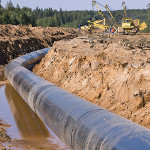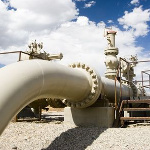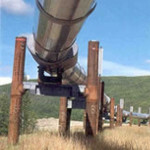Trump’s Fast-Tracking of Oil Pipelines Hits Legal Roadblocks
 Reuters reports that the Trump administration’s effort to cut red tape and speed up major energy projects has backfired in the case of the three biggest U.S. pipelines now planned or under construction.
Reuters reports that the Trump administration’s effort to cut red tape and speed up major energy projects has backfired in the case of the three biggest U.S. pipelines now planned or under construction.
Reuters reporters Scott DiSavino and Stephanie Kelly explain:
“The Republican administration tried to accelerate permits for two multi-billion-dollar natural gas lines and jumpstart the long-stalled Keystone XL crude oil pipeline that would start in Canada. Judges halted construction on all three over the past two years, ruling that the administration granted permits without conducting adequate studies or providing enough alternatives to protect endangered species or national forests.”

 On March 17, the U.S. Department of Transportation’s Pipeline and Hazardous Materials Safety Administration (PHMSA) issued a major proposal to revise the safety standards for onshore natural gas pipelines, reports
On March 17, the U.S. Department of Transportation’s Pipeline and Hazardous Materials Safety Administration (PHMSA) issued a major proposal to revise the safety standards for onshore natural gas pipelines, reports